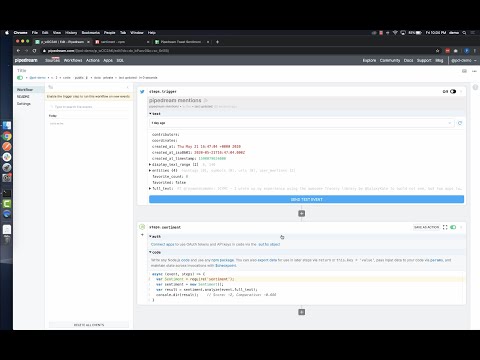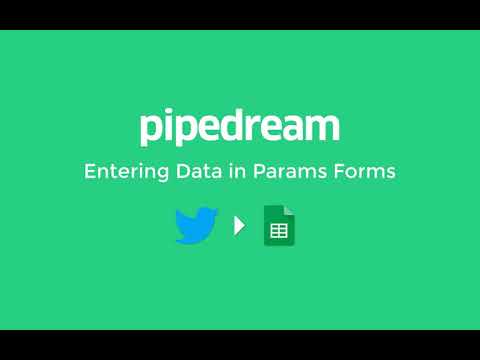What do you want to automate
with Google Sheets and HTML 2 PDF?
Prompt, edit and deploy AI agents that connect to Google Sheets, HTML 2 PDF and 3,000+ other apps in seconds.
Trusted by 1,000,000+ developers from startups to Fortune 500 companies
Popular Ways to Connect Google Sheets with HTML 2 PDF#
Popular Google Sheets and HTML 2 PDF Triggers#
Emit new event each time a comment is added to a spreadsheet.
Emit new event each time a row or rows are added to the bottom of a spreadsheet.
Emit new event each time a row or rows are added to the bottom of a spreadsheet.
Emit new event each time a row or cell is updated in a spreadsheet.
Popular Google Sheets and HTML 2 PDF Actions#
Add a single row of data to Google Sheets. Optionally insert the row at a specific index (e.g., row 2 to insert after headers, shifting existing data down). See the documentation
Add multiple rows of data to a Google Sheet. See the documentation
Get all values or values from a range of cells using A1 notation. See the documentation
Create conditional formatting with color scales or custom formulas. See the documentation
Overview of Google Sheets#
The Google Sheets API allows for the creation, reading, updating, and deletion of data within Google Sheets, enabling a robust platform for spreadsheet management and data manipulation. Through Pipedream, you can craft serverless workflows that respond to various triggers, such as webhook events, emails, or scheduled times, to interact with Google Sheets. This synergy can automate reporting, synchronize data across applications, manage inventory, track leads in a CRM, or even conduct survey analysis by updating and retrieving sheet data on the fly.
Connect Google Sheets#
import { axios } from "@pipedream/platform"
export default defineComponent({
props: {
google_sheets: {
type: "app",
app: "google_sheets",
}
},
async run({steps, $}) {
return await axios($, {
url: `https://www.googleapis.com/oauth2/v1/userinfo`,
headers: {
Authorization: `Bearer ${this.google_sheets.$auth.oauth_access_token}`,
},
})
},
})
Overview of HTML 2 PDF#
The HTML 2 PDF API allows you to convert HTML documents to PDFs. In Pipedream, you can integrate this API into workflows to automate document generation tasks. This can be incredibly useful for generating reports, invoices, or any other document where you start with HTML and need a PDF output. You can trigger these conversions with various events – like a new form submission, a scheduled trigger, or even updates in a database.
Connect HTML 2 PDF#
import { axios } from "@pipedream/platform"
export default defineComponent({
props: {
html_2_pdf: {
type: "app",
app: "html_2_pdf",
}
},
async run({steps, $}) {
return await axios($, {
url: `https://api.html2pdf.co.uk/`,
params: {
license: `${this.html_2_pdf.$auth.license_key}`,
url: `https://example.com`,
},
})
},
})
Related Videos#



Community Posts#


